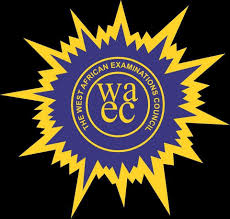After Writing WAEC: A Guide to Choosing Your Career Path
The West African Senior School Certificate Examination (WAEC) marks a significant milestone for students in Nigeria and other West African countries. After months of rigorous study and examination, you’ve finally completed your WAEC. Now, the question looms large: What next? This period is critical as it sets the foundation for your future career. In this guide, we’ll explore the steps you should take to choose the right career path, ensuring that the choices you make now align with your long-term goals.
Understanding the Importance of This Stage
After writing WAEC, you may feel a mix of relief and uncertainty. It’s important to understand that this stage is not just a break from school; it’s a time to make decisions that will shape your future. The choices you make now can influence your career trajectory, so it’s essential to approach this period thoughtfully.
1. Reflect on Your Interests and Strengths
Before diving into specific career options, take some time to reflect on your interests and strengths. Ask yourself:
- What subjects did I enjoy the most during my secondary school education?
- What activities do I find fulfilling outside of academics?
- What are my natural talents or skills?
Understanding what you enjoy and where your strengths lie is the first step in identifying a career that will be both satisfying and successful.
2. Research Potential Career Paths
Once you have a clear idea of your interests and strengths, the next step is to research potential career paths. The world is full of diverse opportunities, and it’s crucial to explore various options before making a decision. Here are a few ways to conduct your research:
- Online Resources: Websites like MyJobMag, CareerGuide, and Jobberman offer insights into different careers, including job descriptions, required qualifications, and potential salaries.
- Career Fairs: Attend career fairs or open days at universities and colleges. These events provide a platform to interact with professionals and get firsthand information about various careers.
- Interviews and Shadowing: Consider conducting informational interviews with professionals in fields you’re interested in or shadowing someone in their workplace to gain a better understanding of what the job entails.
3. Consider Further Education or Training
After completing WAEC, you have several options for further education or training. The path you choose will depend on the career you’re interested in:
- University: If your desired career requires a degree, you’ll need to apply to a university. Consider courses that align with your career goals. For instance, if you’re interested in medicine, you’ll need to pursue a degree in medicine or a related field.
- Polytechnic or College of Education: If you’re leaning towards a more technical or vocational career, a polytechnic or college of education may be a better fit. These institutions offer diplomas and certificates in various fields, from engineering to education.
- Vocational Training: For careers that require hands-on skills rather than academic qualifications, vocational training may be the best route. This could include courses in fields like carpentry, plumbing, fashion design, or ICT.
4. Seek Guidance from Mentors and Career Counselors
Choosing a career path can be overwhelming, but you don’t have to do it alone. Seek guidance from mentors, teachers, or career counselors who can provide advice based on their experience and knowledge. They can help you assess your options, understand the requirements for different careers, and even connect you with opportunities for internships or apprenticeships.
5. Evaluate Your Long-Term Goals
As you narrow down your career options, it’s important to evaluate how each path aligns with your long-term goals. Consider the following:
- Job Stability: Is this career likely to remain in demand in the future?
- Growth Opportunities: Does this field offer opportunities for advancement?
- Work-Life Balance: Will this career allow you to maintain a healthy balance between work and personal life?
- Financial Prospects: Does this career offer the financial stability you desire?
Your long-term goals should play a significant role in your decision-making process. Choose a career that not only aligns with your current interests but also supports your future aspirations.
6. Consider Entrepreneurship
For some, the traditional career path may not be appealing. If you have a passion for innovation and a desire to be your own boss, entrepreneurship could be the right choice for you. Consider areas where you can start your own business, whether it’s in technology, fashion, agriculture, or another industry. Entrepreneurship requires a unique set of skills, including creativity, resilience, and financial acumen, so be prepared for the challenges and rewards it brings.
7. Take Action: Apply for Courses, Jobs, or Training Programs
Once you’ve made a decision, it’s time to take action. Start by applying for the courses, jobs, or training programs that align with your chosen career path. Make sure your applications are well-prepared, with a strong personal statement or cover letter that highlights your passion and suitability for the role or course.
If you’re applying to universities, pay close attention to application deadlines and requirements. Similarly, if you’re seeking a job or apprenticeship, prepare a professional resume and be ready for interviews.
8. Stay Open to Change
While it’s important to have a plan, remember that life is unpredictable, and your interests may evolve over time. Stay open to change and be willing to adapt if you discover new passions or opportunities. The career path you choose now is not set in stone; it’s the beginning of a journey that will continue to unfold as you gain more experience and knowledge.
Conclusion
After writing WAEC, the choices you make will set the stage for your future career. By reflecting on your interests, researching potential paths, seeking guidance, and taking action, you can confidently choose a career that aligns with your strengths and long-term goals. Remember, this is just the beginning of your journey—stay curious, stay motivated, and be open to the opportunities that come your way
